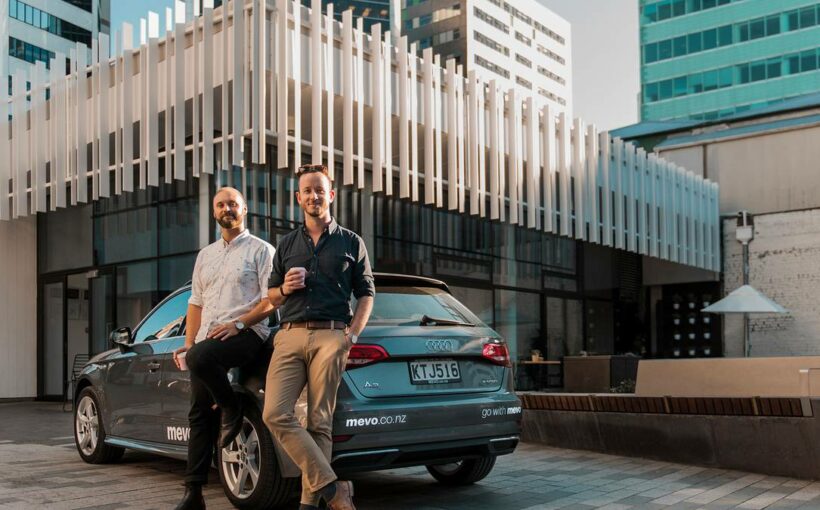Z Energy-backed Mevo is making two deals that will see it launch into Auckland and Hamilton – and could see it become the largest car-share company in the country.
The Wellington-based startup will buy Hamilton-based car-share company Loop for an undisclosed sum in a deal closing on March 31.
Loop
has around 20 vehicles in its fleet and charges them out at $15 per hour.
Mevo founder Erik Zydervelt says the Loop deal is a “stepping stone to a launch into Auckland later this year.”
At the same time, Mevo is entering a $30 million vehicle supply agreement with the Ebbett Group which will go toward “further expansion of the Mevo fleet”.
Waikato-based Ebbett has 17 dealerships around the North Island and is the current owner of Loop, which it launched in 2019.
Zydervelt says the $30m will equate to around 600 cars being added to Mevo’s fleet.
The Mevo co-founder would not give a time-frame on the expansion, but it would easily make his company the largest car-share operator at a time when the various contenders’ apps and websites indicate that the number of car-share rides available at any one time in Auckland, Wellington or Christchurch
can be measured in the dozens (the companies themselves are shy of putting official numbers in the public domain; in late 2019, shortly before Covid hit, Mevo’s fleet was put at 60).
It could potentially see a business that grows large enough in its own right to escape greenwashing accusations (Mevo’s 32 per cent owner Z and Zilch’s 40 per cent shareholder Genesis Energy both use car-share investments as show pony assets in their corporate marketing, despite each business equating to a rounding area next to their total multi-billion operations).
Mevo was founded in the capital in 2014, but had its breakthrough moment in 2018 when it negotiated a “free-floating” carpark deal with Wellington City Council. Previously, you had to return a vehicle to the same place. Under the new deal, Mevo cars can be hired in one place, then left in any council-controlled parking space.
A new Auckland Transport policy launched in November 2019 allowed Mevo, in principle, to bring the same free-floating car park modus operandi to Auckland – but its launch was headed off by the outbreak.
In its 2019 report, AT said it would create up to 400 car parking spaces (which would equate to around 5 per cent of the council-controlled total), at its own cost, that would be reserved for car-share services.
Once it arrives in Auckland later this year, Mevo’s free-floating, escooter and ebike-like model, will give Mevo a point of difference over the established City Hop (whose cars must be returned to the same parking space) and Christchurch-based Zilch, which allows you to pick up a car in one zone then drop it in another (e.g. the CBD to the airport or vice versa). The all-electric Zilch arrived in Auckland in late 2019, only to be hit by the pandemic and is still at a beachhead phase.
Like rivals, Mevo has a focus on low emissions and has received a $500,000 grant from Crown agency the EECA to go toward the purchase of electric vehicles for his fleet (Zilch and City Hop have also benefited from the matching, contestable funding).
Zydervelt would not comment on how many of the 600 new vehicles might be EVs.
But he argued that every vehicle, whether petrol or electric, would contribute to lower emissions regardless. He cited a Wellington City Council study, based on 2019 data from Mevo and City Hop, which found every car-share vehicle took 11.4 vehicles off the road (in Auckland, your correspondent has sold his car in favour of using a mix of solutions including City Hop – more on that project shortly).
Mevo’s fleet in Wellington consists of a mix of petrol-powered VW Polo and Audio A3 e-tron electric vehicles.
The Polos cost 60c a minute or $15 an hour, the e-trons 60c per minute or $25 per hour.
The pricing includes petrol (or electricity), insurance and up to 200km. Deals include $30 to have a Polo overnight (6pm to 8am). An e-tron overnighter costs $50.
All cars are reserved, located and unlocked using an app
Car-share companies took a knock in level 4 when they weren’t deemed essential services.
Regardless, Zydervelt said his company was “growth-profitable” – or could make a profit at any point, if it chose to stop spending money on expansion.
Z said in its 2020 annual report: “Mevo, which, prior to Covid-19 Alert level 4 restrictions, had its best year in terms of growth in demand for its services … Our staff
increasingly use Mevo in Wellington with 3.3 tonnes CO2 emissions offset from Z business trips.” It anticipated growth ahead, given Mevo had gained AT clearance to enter the much larger Auckland market, “paving the way for the offer to be more appealing to a wide range of customers and investors”.
Source: Read Full Article
